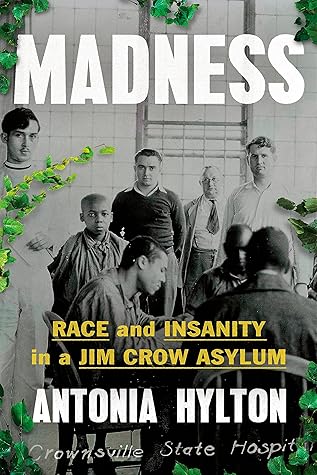Historians of slavery and prisons have long argued that the commercial value of enslaved Black people in the American South was inextricably bound to their health status and their capacity to labor in the agricultural or domestic settings that had defined the Southern economy. Crownsville’s founding took vestiges of chattel slavery—from the style of the rolls to the financial recordkeeping format used on plantations—and translated them to a clinical setting.
Welcome back. Just a moment while we sign you in to your Goodreads account.


